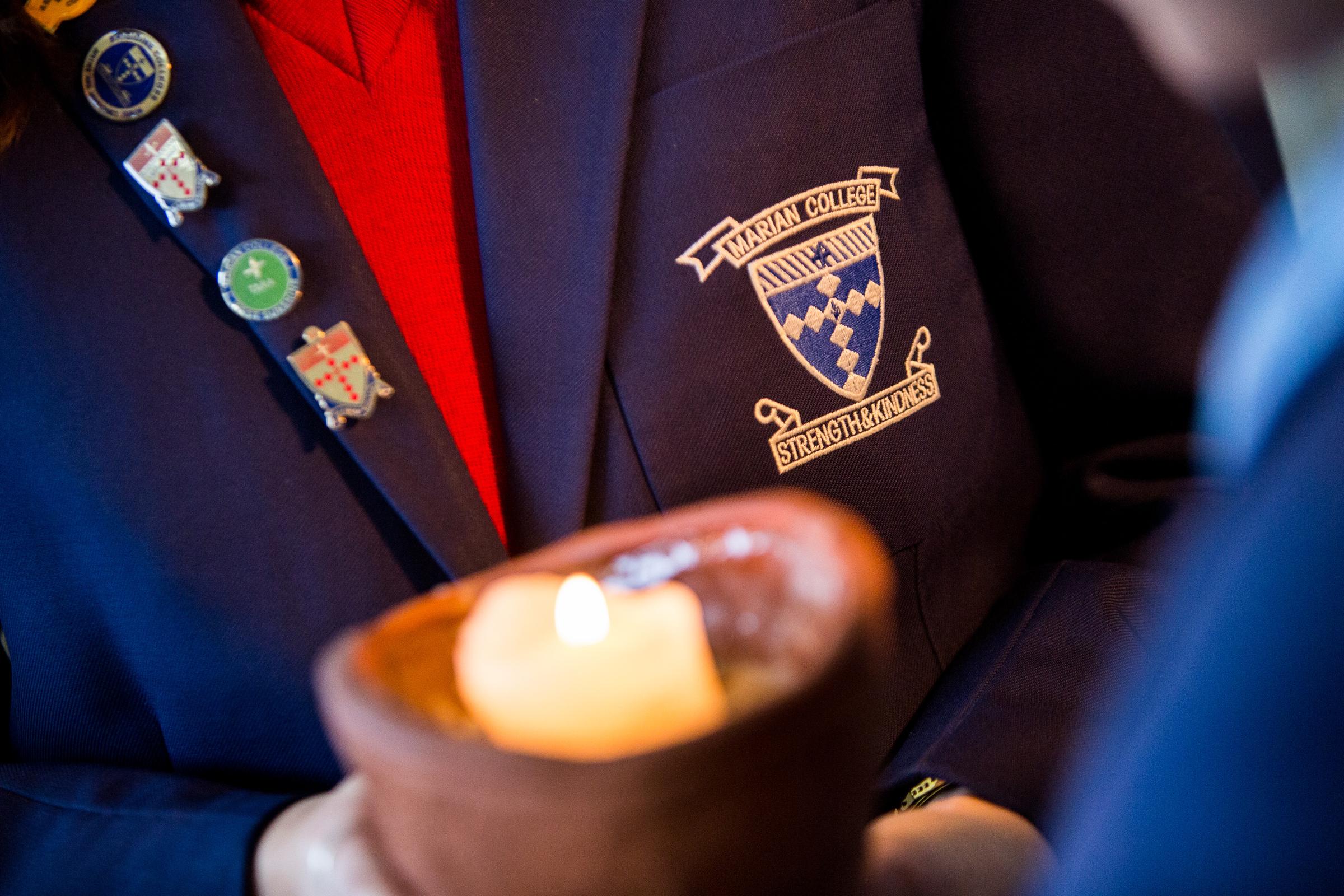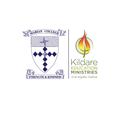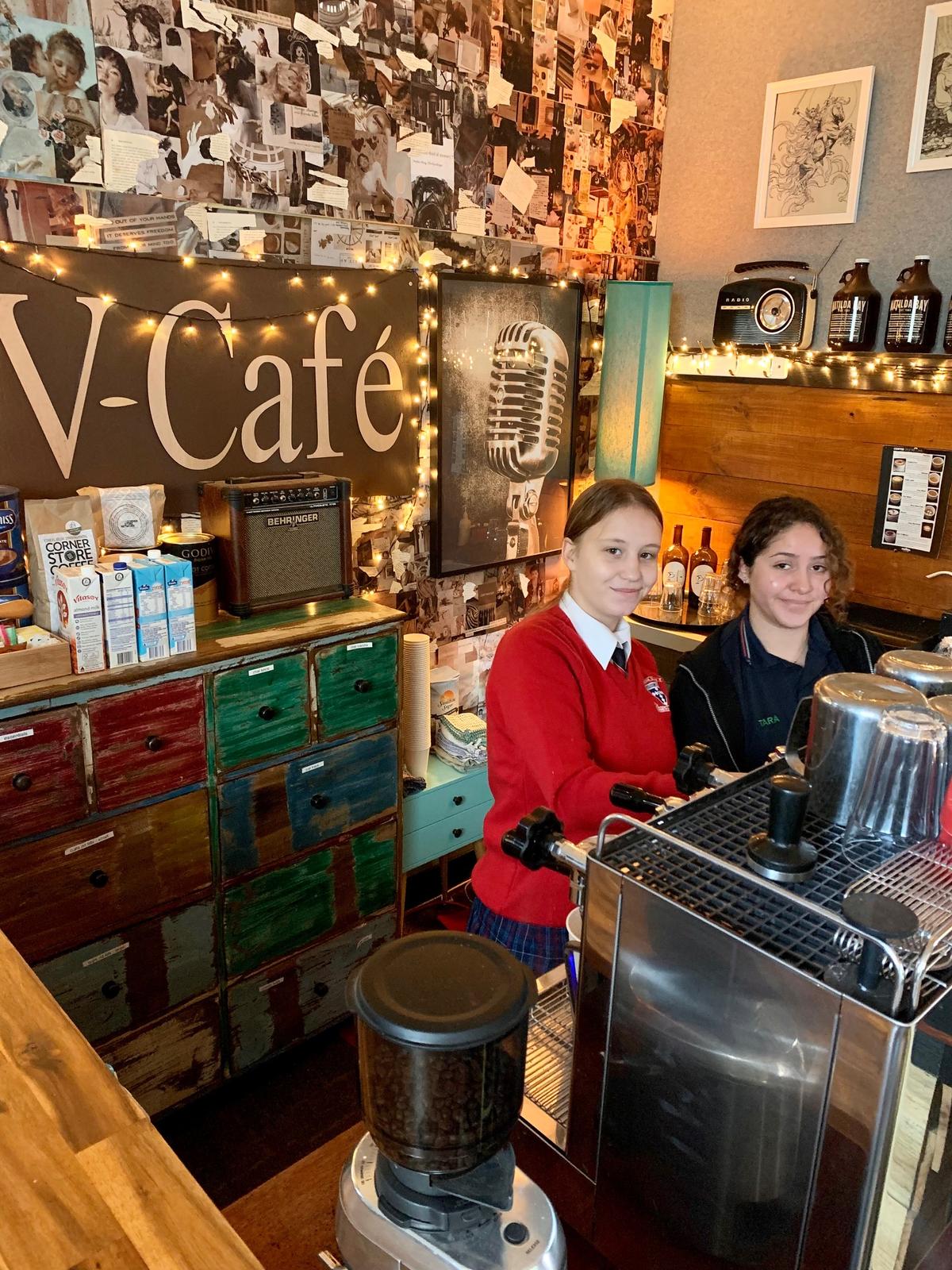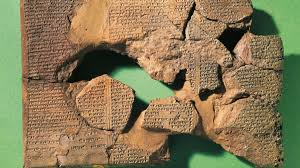Faith and Mission

Applied Learning Marian College
During semester one, the talented VCAL and Applied Learning students have been working incredibly hard in the establishment of our educational VCAL enterprise program E-VENT. This provides students with the opportunity to work in a simulated workplace setting focusing on hospitality, retail and sustainability.
V-Café integrates all three domains and is continuously striving to meet all catering demands in a sustainable manner. This is achieved through using coffee beans that are ethically
sourced through direct trade practices. We have formed a partnership with The Corner Store Network, which is a Melbourne based non-for profit coffee roasting warehouse. The Corner Store Network supply V-Café with roasted coffee beans and all costs are directly transferred to the farmers in East Timor.
In addition to this, students successfully planned, established and implemented Thrift Co. This is a new and pre-loved clothing boutique store primarily focused on reducing landfill, providing clothing to those less fortunate, and making financial donations to selected charities, including Wellsprings for Women, St Kilda Mums and the Gatehouse organisation.
Image credits and more information about the Corner Store Network, please see here: https://cornerstorenetwork.org.au/
Belinda McGrath and Adam Spinks
Applied Learning Teachers
Year 10 Term 2 Religious Education
Throughout Term 2, the Year 10 Religious Education unit explored the Pentecost Story found in Acts 2:1-13.
The students unpacked the passage using The Worlds of The Text as a guide.
First the students learnt about The World Behind the Text through researching information and identifying the time / year the passage was written, the cultural context, the socio/historical context, the author of the text and the audience. One example includes identifying the author and audience of the text.
The author and audience
The author of The Acts of the Apostles is believed to be Luke. Luke also wrote the Gospel of Luke although some scholars believe a community of writers contributed to the book. He was a gentile which means he was not Jewish. This was beneficial for him because he wrote for a non-Jewish audience. Scholars believe he was not an eye-witness to the ministry of Jesus; rather he sourced his information from Paul. Luke was a physician, therefore it is understood that he was a well educated man. Most of his audience were gentiles but theologians also write that there would have been Jewish people as well, because the passage was written at the time that the Jews were celebrating Pentecost.
Second, the students took note of the literary style of the passage. This is referred to as The World of the Text. The text provides context about the genre of the writing which is known as the literary style.
Literary Style
Acts 2:1-13 is written as a narrative or story. It is based on belief and faith and follows a history literacy style because it accounts for the birth of the Christian Church. It uses metaphors and symbolism to describe events, Eg, ‘Tongues of fire’ was used to describe the presence of the Holy Spirit. It is also a metaphor for fire which has often been referred to in the Bible as a symbol of purification.
And finally the students explored The World in Front of the Text. This exploration provides context about how we can interpret the text today and identify what the purpose of the text means for us in 2022.
The Purpose of the Text
Acts 2:1-13 has many purposes. One is to show that before Jesus died, he promised to send a gift to the Apostles after he had resurrected. This prophecy was fulfilled when the Holy Spirit entered the room where they were hiding, as ‘violent wind’ and appeared as tongues of fire on their heads. Another purpose was to show that after the Apostles were blessed with the Gifts of the Holy Spirit, they were courageous enough to leave their house and teach others about the life and ministry of Jesus and the Good News of God. Miraculously they were speaking in many languages and were understood by the many thousands of people in Jerusalem at the time of Pentecost.
Well done to all the Year 10 students for exploring The Three Worlds of the Text throughout Term 2 and writing an Exegesis about the Worlds as part of their assessment.
Bernadette Casey
Assistant to the Principal - Faith & Mission



